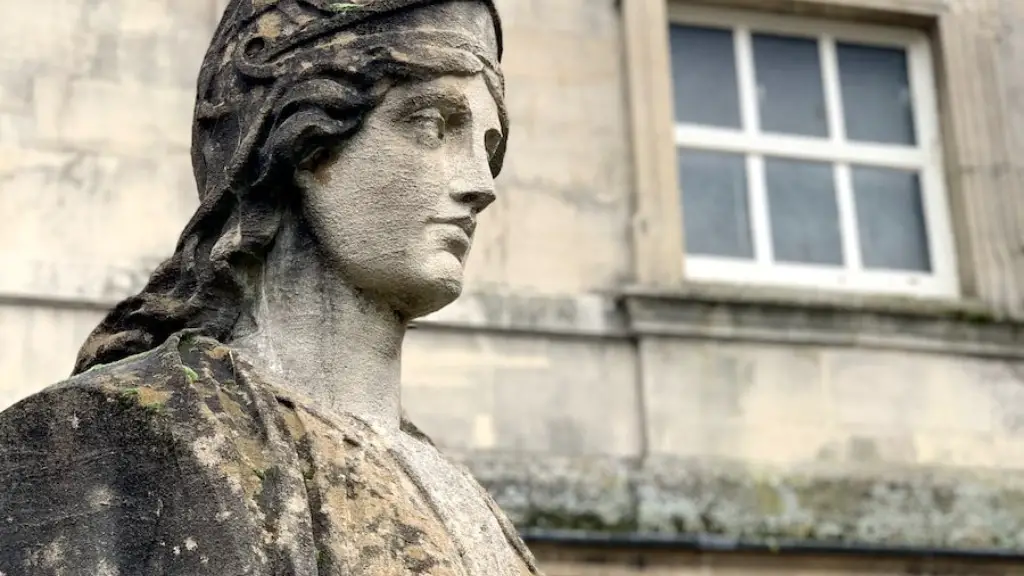The Roman army was a largely mercenary force until the late Republic, when Gaius Marius reformed it into a standing professional force. During this time, the soldiers had to provide proof of citizenship in order to join. The price of citizenship was becoming increasingly expensive, so many lower-class citizens were unable to join the army. Marius’ reforms lifted this financial burden by making citizenship free for all those who joined the army. This eventually led to the army becoming a tool of the government, used to maintain order and support the ruling class.
In order to prove their citizenship in ancient Rome, soldiers had to present their military discharge certificate, or diploma, to a magistrate. The diploma was proof that the soldier had served his time in the military and was now a free citizen.
How did ancient Romans prove their citizenship?
Roman citizenship was a highly coveted status in the Roman Empire. Roman citizens enjoyed a number of privileges and benefits not available to non-citizens. Roman citizenship could be acquired by birth if both parents were Roman citizens, although one parent might be a peregrinus (“alien”) with connubium (the right to contract a Roman marriage). Citizenship could also be granted by the people, later by generals and emperors.
The auxilia were a key force in the Romanization of the empire, as many of their sons enlisted as legionaries. This meant that they were exposed to Roman culture and values, and eventually adopted them as their own. As they completed their terms of service, they were granted full Roman citizenship, further solidifying their place in Roman society.
How can you tell if someone was a Roman citizen
Roman citizens were easily identified by their ability to speak Latin or Greek, but more importantly they could be identified by what they wore. Roman citizens were the only people allowed to wear togas in Roman territory. While patricians had the extra benefit of having an iron signet ring.
Citizenship in ancient Rome was a complex and ever-changing concept. At its broadest, citizenship included all those who lived under the protection of the Roman state. This group included not only Roman citizens, but also foreigners who had been granted certain rights by the state. Within this broad category, there were three main types of citizens: full citizens, partial citizens, and non-citizens.
Full citizens were those who enjoyed all the rights and privileges of citizenship. They could vote, hold public office, and marry freeborn persons. Partial citizens were those who could vote and practice commerce, but could not hold office or marry freeborn women. Non-citizens were those who did not enjoy any of the rights or privileges of citizenship.
The concept of citizenship in ancient Rome was constantly evolving, and the exact rights and privileges of each type of citizen could vary depending on the time and place. Nevertheless, citizenship was an important part of Roman society, and one that could bring both rights and responsibilities.
How was citizenship determined?
This statement is from the 14th Amendment to the United States Constitution and it establishes that anyone born in the United States or anyone naturalized in the United States is a citizen of the United States. This amendment was ratified on July 9, 1868.
The Edict of Caracalla was an important event in Roman history as it effectively gave all free men in the Roman Empire full Roman citizenship. This had a number of important consequences, including increasing the size of the Roman voting body and making it easier for men of lower social status to rise up in society. The edict also had a significant impact on the legal system, as it made it easier for people to bring cases to court and to have them heard by a jury of their peers.
What was the name for the Roman soldiers who were not citizens?
The auxiliaries were the non-citizens in the Roman army. They wore less protective armor than legionaries and were placed in the front ranks in battle. Q: Who was the centurion in the Roman army? In the Roman army, a centurion was in charge of about 80 men in his legion.
The rule of law and a vested interest in one’s government are two of the main rewards of citizenship in the early days of the Republic. The Roman government was established so that there would be no return of a king.
Did Rome offer citizenship to conquered peoples
Most conquered enemies were offered some level of Roman citizenship, with or without full voting rights. However, because a person had to be physically present in Rome to vote, the extension of voting rights beyond the population of the city itself did not drastically alter the political situation in Rome.
The granting of citizenship to all free inhabitants of the Roman Empire by Emperor Caracalla in 212 CE was a significant event in Roman history. It ended the piecemeal policy approach of the past two centuries and ensured that all residents of the empire were treated equally. This move helped to solidify Rome’s position as a leading world power and ensured its continued success for centuries to come.
Did Romans have birth certificates?
Birth certificates for Roman citizens were introduced during the reign of Augustus (27 BC–14 AD). Until the time of Alexander Severus (222–235 AD), it was required that these documents be written in Latin as a marker of “Romanness” (Romanitas). There are 21 extant birth registration documents of Roman citizens.
Romanitas is the collection of political and cultural concepts and practices by which the Romans defined themselves. It is a Latin word, first coined in the third century AD, meaning “Roman-ness” and has been used by modern historians as shorthand to refer to Roman identity and self-image. Romanitas encompassed the idea of being a good Roman citizen, and of being a part of the Roman state. It also included the idea of Roman superiority, of being a part of a great and powerful empire. Romanitas was a part of Roman identity that continued even after the fall of the Roman Empire.
How did foreigners get Roman citizenship
The military has always been a great way for non-Romans to secure citizenship. As membership of the legion was reserved for citizens, a foreigner could only be recruited into the auxiliary units. But on completing 25 years of service, he would be granted Roman citizenship as a reward.
To be eligible for naturalization, an applicant must:
Be at least 18 years of age at the time of filing the application;
Have been a lawful permanent resident for at least five years (or three years if applying under the spouse of a U.S. citizen category);
Have continuous residence and physical presence in the United States;
Have good moral character;
Demonstrate knowledge of U.S. history and government; and
Be able to speak, read, and write English.
What are the three ways of citizenship?
Each individual’s nationality is determined by their country of birth, ancestry, or naturalization. Nationality can be acquired in one of three ways: by birth on a State’s territory (jus soli), by descent from a State’s national (jus sanguinis), or by naturalization. The citizenship laws of each State dictate whether the State applies jus soli or jus sanguinis and explain the requirements for naturalization.
An individual’s jus soli nationality is determined by their place of birth. If an individual is born on the territory of a State, then that individual is a national of that State. There are some exceptions to this rule, such as if the individual’s parents are diplomats stationed in the country or if the individual is born stateless.
An individual’s jus sanguinis nationality is determined by their ancestry. If an individual’s parents or grandparents are nationals of a State, then that individual is also a national of that State.
Naturalization is the process by which an individual who is not a national of a State can become a national of that State. The requirements for naturalization vary by State, but typically involve completing a period of legal residence in the State and fulfilling other criteria such as
Citizenship by birth- this is when you are born in a country and are automatically a citizen of that country.
Citizenship by registration- this is when you live in a country for a certain amount of time and then register to become a citizen.
Citizenship by naturalisation- this is when you live in a country for a certain amount of time and then go through a naturalisation process to become a citizen.
How did Paul get his Roman citizenship
It is fairly clear that St Paul acquired his Roman citizenship at birth, having been born the son of a Jewish Roman citizen of Tarsus. When Lysias was informed by Paul that the latter was a Roman citizen, his immediate reaction was to tell Paul that he himself had had to pay a great sum for that privilege. This would suggest that Paul’s citizenship was not something that he was particularly proud of or that he felt was a great honor.
It was common for Roman soldiers to be away from home for long periods of time, and marriage was seen as a way to prevent them from engaging in immoral or sinful behavior. Soldiers were also seen as a valuable asset to the state, and it was thought that they would be more likely to perform their duties if they were not distracted by family responsibilities. The law prohibiting marriage was eventually repealed by Septimius Severus, who recognized that it was unfair to soldiers and their families.
Final Words
In order to prove their citizenship in ancient Rome, soldiers had to present a document called the “civitatis” which was issued by the city in which they were born.
There are many ways that Roman soldiers could prove their citizenship in ancient Rome. One way is by providing a signed document from a magistrate attesting to their status as a citizen. Another way is by presenting themselves in person to a magistrate and providing proof of their origins.





